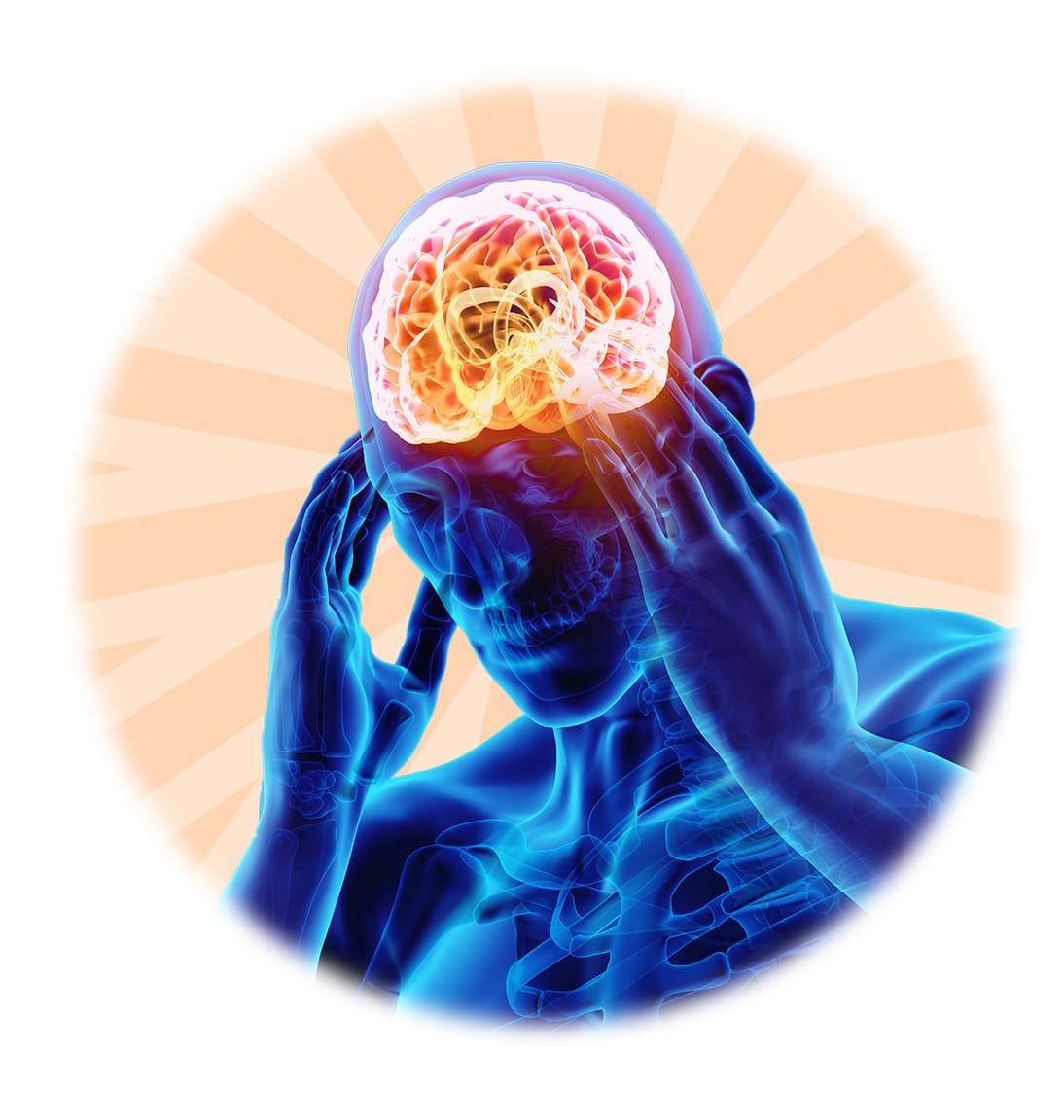Chronic Headache Pain Management Specialists
Chronic Headache Pain
Condition Overview
Headaches are among the most common medical complaints, with migraines, tension headaches and cervical muscular headaches frequently reported. While the pain can be intense, the majority are chronic and not connected to serious neurological diseases. With over 300 potential causes, pinpointing the exact source of headache pain can be challenging.
The Key to Effective Headache Pain Treatment
When dealing with headaches, it’s important to distinguish between those that can be effectively managed at a pain clinic and those that may require a neurologist’s expertise. Proper diagnosis is crucial because it helps ensure you get the right treatment. If a headache is misdiagnosed, the treatment might not work or could even make things worse. By accurately identifying the type of headache and its cause, your healthcare provider can create a treatment plan that gives you the best chance for relief and a better quality of life.
Headaches We Treat at Nura
Pain clinics like Nura specialize in treating headaches that stem from musculoskeletal or nerve-related issues, offering targeted care through the expertise of our pain management specialists.
Cervicogenic Headache (Whiplash)
Cervicogenic headaches originate in the neck but manifest as pain in the head. Often triggered by neck injuries or conditions like arthritis, these headaches can cause pain that radiates from the neck to the front of the head. Treatment typically involves addressing the underlying neck issue to alleviate headache symptoms.
Head & Neck Pain After Injury
This type of pain typically occurs after a physical trauma, such as a fall, sports injury or car accident. It often involves both the head and neck and can result from damage to muscles, ligaments, or nerves. Persistent pain in these areas may require specialized treatments to alleviate discomfort and restore function.
Intractable Migraine Unresponsive to Standard Treatment
Intractable migraines, also known as refractory migraines, are severe headaches that don’t respond to typical migraine treatments. These migraines can be debilitating and require more advanced interventions like nerve blocks or other specialized therapies.
Occipital Neuralgia
Occipital neuralgia is a chronic pain condition that affects the occipital nerves, which run from the base of the skull to the scalp. It causes sharp, stabbing pain in the back of the head and neck, often described as an electric shock-like sensation. Treatment options typically include medications, nerve blocks or other procedures to relieve pain and reduce nerve sensitivity.
Post-Concussive Syndrome with Head & Neck Pain
Post-concussive syndrome occurs after a head injury, such as a concussion. Symptoms can include persistent headaches, dizziness and neck pain. This condition may last for weeks or even months, and treatment aims to manage these symptoms and support recovery.
Headaches Best Treated by a Neurologist
Headaches that involve complex neurological processes require the expertise of a neurologist specializing in brain and nerve function.
Classic Migraine
A classic migraine is a type of headache often accompanied by auras — visual disturbances such as flashing lights or zigzag patterns — before the pain begins. The headache itself is usually intense, throbbing and often on one side of the head. Migraines can last for hours to days and may be associated with nausea, vomiting and sensitivity to light and sound. Migraine headaches affect 20 percent of the population. If the migraine headache is infrequent, treating single episodes with medication and non-medication therapies is preferable. If the migraine headaches occur on a frequent or regular basis, preventive (prophylactic) migraine pain management is needed.
Cluster Headache
Cluster headaches are severe headaches that occur in groups or “clusters,” often at the same time each day or night. The pain is usually concentrated around one eye and may be accompanied by redness, tearing or nasal congestion. These headaches are incredibly intense but typically brief, lasting from 15 minutes to three hours.
Chronic Daily Headaches
Chronic daily headaches are characterized by headache symptoms that occur 15 or more days per month for at least three months. These headaches can vary in intensity and type, ranging from mild tension-type headaches to severe migraines. Chronic daily headaches require careful management to prevent them from worsening over time.
Medication Overuse Headaches
Medication overuse headache, also known as rebound headache, occurs when pain relief medications are taken too frequently. Instead of relieving headaches, overuse of these medications can actually lead to more frequent and severe headaches. Treatment often involves reducing or stopping the use of the triggering medications under medical supervision.
Post-Concussive Syndrome without Neck Pain
Post-concussive syndrome without neck pain occurs after a concussion, where headaches persist without accompanying neck pain. These headaches can be similar to tension-type headaches or migraines and may be accompanied by other symptoms like dizziness, difficulty concentrating and fatigue. Treatment focuses on managing headache symptoms and supporting overall recovery.
Stress-Related Headaches
Stress-related headaches, a subtype of tension headaches, are triggered or exacerbated by emotional or physical stress. The pain is usually mild to moderate and can feel like a tightness or pressure around the forehead or back of the head and neck. These headaches can be managed through stress-reduction techniques and lifestyle change
Tension Headaches
Tension headaches are the most common type of headache and are often described as a constant, dull, aching pain around the head, often likened to a tight band around the forehead. They are typically caused by stress, muscle tension or poor posture and can last from 30 minutes to several hours.

Diagnosis of Chronic Headaches
Diagnosing whether a headache is neurological or stems from musculoskeletal or nerve-related issues involves a thorough process. It starts with a detailed medical history and physical examination to assess headache characteristics and associated symptoms. A neurological assessment evaluates brain and nerve function, and diagnostic tests like MRI or CT scans may be used to view brain structures. Understanding the headache’s pattern and triggers further helps in distinguishing the cause. If needed, a referral to a neurologist or pain specialist may provide additional insights and specialized care.
Treatment Options for Chronic Headaches
Treatment options for chronic headaches vary based on the underlying cause. Accurately identifying the source of your pain allows our team to tailor a treatment plan that offers the best chance for relief. Often, combining multiple approaches provides the most effective results. At Nura, our specialists may recommend a variety of treatments for your chronic headache pain, including:
- Medication Management
- Physical Therapy
- Epidural Steroid Injections
- Medial Branch Blocks
- Occipital Nerve Blocks
- Radiofrequency Ablation (RFA)
- Spinal Cord Stimulation (SCS)
- Targeted Drug Delivery (TDD)
Nura no longer offers Botox injections for pain relief. We understand this change may be inconvenient and apologize for any disruption it may cause. If you are currently receiving care at Nura for your chronic pain, please contact us for a list of local providers who continue to offer Botox for headache pain.

Real people, real stories
I have someone who is there for me.
For 50 years, Diane endured severe migraines caused by cervical and lumbar stenosis, often requiring ER visits where she was given Fentanyl for flare-ups lasting up to five days. Desperate for relief, she sought help from a pain clinic but refused the heavy opioid regimen they prescribed, leaving her still searching for a solution.
Read More
Find Pain Relief
Schedule an appointment with one of our pain specialists by filling out our appointment request form or giving us a call at 763-537-6000.
